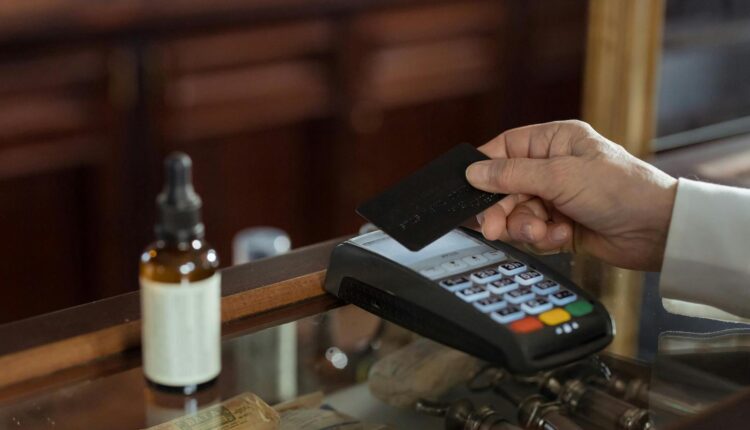Thomas Domingue: DC Council’s Fair Swipe Act would hurt Main Street more than Wall Street
Most personal purchases today happen with a quick swipe or tap of a credit or debit card. It’s fast, convenient and safe — thanks to massive investments in fraud protection and secure payment networks. But now, that system is under threat from some members of the DC Council. The so-called “Fair Swipe Act” would ban credit card interchange fees on sales taxes and tips in DC.

What are interchange fees? These are fees paid by businesses (not consumers) and used by card issuers, such as credit unions, to process and secure electronic transactions — keeping your information safe and ensuring merchants get paid on the spot. These fees are used to fund card rewards programs and other account services that many DC residents use to make ends meet. They are also used by credit unions to reinvest in the community through programs such as educational scholarships, and park or neighborhood renovations. Interchange fees average between 2% and 3% per transaction and have not increased in more than 15 years.
Ward 6 Councilmember Charles Allen, the bill’s lead sponsor, claims the legislation represents a battle of Wall Street vs. Main Street. But that’s nothing more than an empty political slogan — it’s wrong, and it’s reckless. This bill will significantly impact a critical resource that credit unions like ours use to protect customers from fraud and offer competitive financial products to our members. We’re not Wall Street. We are not-for-profit, member-owned financial institutions that reinvest in local communities. There are 31 credit unions headquartered in the District, serving 276,000 members.
And credit unions aren’t the only ones at risk — small businesses will suffer under this legislation, too. The current electronic payment system is efficient and dependable. When a credit union member uses their card, we receive the total cost — a single number — from the merchant. Currently, financial institutions don’t know, and don’t want to know, what the customer purchased, how much they tipped, or what the sales tax rate is in the jurisdiction where the purchase was made.
But, under Councilmember Allen’s bill, DC businesses will need to transmit a detailed record of exactly what was purchased so that financial institutions can have auditable proof that they did not improperly charge interchange. These institutions won’t be able to simply rely on merchants — who are not subject to any requirements or penalties under Allen’s bill — to get it right. That means massive amounts of customers’ private purchase data will need to exchange hands, creating new opportunities for the disclosure of their personal information.
Furthermore, if Allen’s bill were to pass, customers will almost certainly be forced to pay sales taxes and tips in cash or by check, creating confusion and inconvenience for merchants and customers alike. Those claiming the bill will not impact customer payments are not being realistic. No one can reasonably expect financial institutions to process and secure the sales taxes and tips and to assume the fraud and compliance risk for this portion of the transaction, if they cannot charge a fee for these services. These services and responsibilities will thus fall on DC small businesses to perform for themselves.
Most DC small businesses simply don’t have the back-office staff or bandwidth to undertake this effort. And besides, the cost associated with a cash transaction far exceeds the 2% to 3% interchange fee in the first place. For small businesses, the “Fair Swipe Act” is a big loser. So what’s driving some councilmembers to push this legislation?
It’s simple. This bill would line the pockets of big-box retailers like Walmart and Amazon and large national food chains like McDonald’s who stand to benefit from the legislation. Unlike DC small businesses, these corporations maintain an army of accountants and lawyers to administer the new payment regime. That’s why they are spending big to enact it.
While Councilmember Allen and others claim the “Fair Swipe Act” will help consumers, history says otherwise. When the federal government capped debit card interchange fees in 2011, only 1% of merchants lowered prices. Further, rewards programs on debit cards all but disappeared. Proponents of the DC bill say that won’t happen with credit cards if interchange fees are similarly regulated. But they offer nothing more than wishful thinking in the face of real-world evidence that says otherwise.
No other U.S. city or state has implemented a law like this — only Illinois tried, but it has so far been blocked from implementing the law by the courts there. In October 2024, the U.S. Comptroller of the Currency called the Illinois law “ill-conceived” and “unworkable.”
Legal challenges are likely here if this bill passes. At a time when DC is already strapped for cash, the “Fair Swipe Act” would force the District to divert needed taxpayer dollars to defend a law that benefits billion-dollar retailers at the expense of local businesses and credit unions.
Had enough? It’s not too late to stop this. You can learn more and make your voice heard by visiting GuardYourCard.com/DC.
Thomas Domingue is CEO of the Department of Labor Federal Credit Union.
About commentaries
The DC Line welcomes commentaries representing various viewpoints on local issues of concern, but the opinions expressed do not represent those of The DC Line. Submissions of up to 850 words may be sent to editor Chris Kain at chriskain@thedcline.org.



Comments are closed.